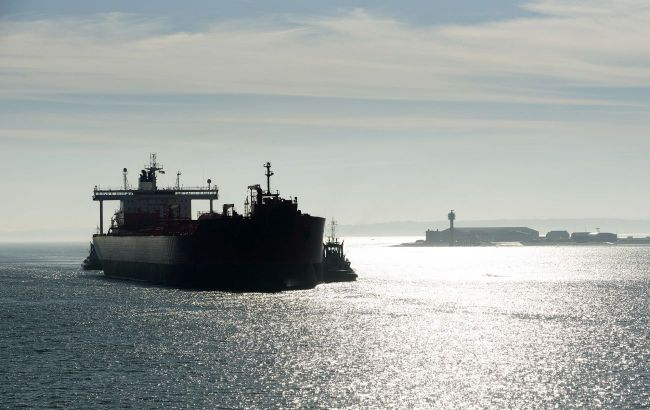Sanctioned Russian tankers resume oil deliveries, Bloomberg reports
 Illustrative photo: Russian tankers resume oil transportation despite sanctions (Getty Images)
Illustrative photo: Russian tankers resume oil transportation despite sanctions (Getty Images)
The export of oil from Russia has been increasing over the past two weeks. This is due to nearly half of the sanctioned vessels of the terrorist state resuming the transportation of Russian oil, according to Bloomberg.
According to the outlet's estimates, the volume of crude oil supplies from all Russian ports has increased to 3.26 million barrels per day over the four weeks leading up to April 27.
The reason for this is that the administration of US President Donald Trump is currently refraining from imposing new sanctions on Russia. As a result, several tankers that were sanctioned during Joe Biden's presidency have resumed transporting Russian oil.
At least 18 out of 39 vessels listed in the US blacklist in 2023–2024 are now regularly transporting oil from Russian ports, despite previously being idle after sanctions were imposed. According to vessel movement data collected by Bloomberg, several more tankers have likely shifted to routes to Iran and Venezuela.
Crude oil supplies
In the week leading up to April 27, 32 tankers loaded 23.72 million barrels of Russian crude oil, according to vessel movement data and port agents' reports. This is more than the 23.45 million barrels loaded by 31 vessels the previous week.
The flow of crude oil during the seven days prior to April 27 averaged about 3.39 million barrels per day, which is 40,000 barrels more than the previous week.
The total value of oil exports from Russia increased for the second consecutive week—by approximately $50 million, or 4%, to $1.33 billion per week.
For example, export prices for Russian Urals crude oil rose by about $0.90 per barrel, while the price for the key Pacific oil grade, ESPO, increased by approximately $1.50. This increase reflects both higher supply volumes and average prices.
Russia's shadow fleet
In 2022, the EU imposed a ban on the import of Russian oil and set a price cap in coordination with the G7 on Moscow's international crude oil sales, hoping to reduce the Kremlin's revenues following its invasion of Ukraine.
However, Russia soon found ways to circumvent these measures. Moscow's shadow fleet, which often relies on questionable insurers to bypass oil price caps, now accounts for up to 17% of all oil tankers in the world. As a result, the shadow fleet now transports over 80% of all Russian crude oil. To achieve this, Moscow uses old tankers that do not meet modern environmental standards.
Additionally, it should be noted that not long ago, Trump personally threatened to impose secondary sanctions on countries that purchase Russian oil, but so far, the US has been slow to take harsh actions.

